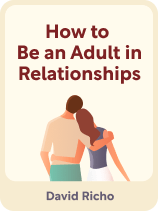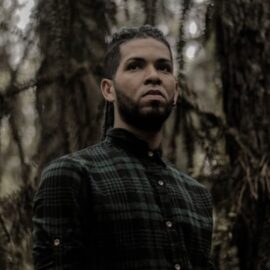

This article is an excerpt from the Shortform book guide to "How to Be an Adult in Relationships" by David Richo. Shortform has the world's best summaries and analyses of books you should be reading.
Like this article? Sign up for a free trial here.
Do you sometimes wish you were back in the honeymoon phase? How do you deal with change in a relationship?
David Richo argues that all successful relationships happen in three phases—the honeymoon phase, the discordant phase, and the devotion phase. Mindful loving enables you to transition between these phases in a way that makes your relationship stronger.
Learn how to deal with change in a relationship so that it doesn’t sour over time.
Mindful Loving in the Honeymoon Phase
To understand how to deal with change in a relationship, you need to know what phase of the relationship you’re in. In the honeymoon phase, romance is at a high and you express mindful love easily. You act like the best version of yourself, and so does your partner, so you’re both swept away by the illusion that your partner is perfect or nearly perfect. As a result, it’s easy for you and your partner to practice Gratitude, Respect, Engagement, Attention, and Tenderness (GREAT) with each other and affirm one another’s inherent lovability. This helps you build a mutually loving foundation upon which the rest of the relationship can rest.
(Shortform note: Neuroscientists say that the high you experience during the honeymoon stage is caused by physiological changes in your brain. You’re so enthralled by your partner that just looking at or thinking about them activates the chemicals in your brain responsible for desire, connection, and euphoric feelings. That’s why it’s so easy to practice the GREAT model with each other in this stage—these neurochemicals make you feel good, so you’re motivated to keep being intimate with your partner.)
Mindful Loving in the Discordant Phase
Richo says that you and your partner will inevitably leave the honeymoon stage and enter the discordant phase when you begin to have conflict with each other. In this stage, you’ll see each other as flawed for the first time.
According to Richo, conflict can be resolved more easily and strengthen your relationship if you approach it in a mindfully loving way: as an opportunity to get to know and accept each other more fully.
(Shortform note: The mindfully loving approach to conflict doesn’t just strengthen your relationship—it also supports your physical health. Studies show that if conflict happens too often or for too long in your relationship, it may lead to chronic stress. Stress can make you sick—it lowers your immunity to illnesses, causes inactive health issues to flare up, and can result in chronic pains like frequent headaches. In contrast, couples who resolve conflict in a healthy, timely way are healthier in the long run.)
To resolve conflicts in a mindfully loving way, Rico says you have to put your ego aside and focus on cooperating with your partner instead of on winning the argument. More specifically, you and your partner should listen to and validate each other’s feelings about the conflict, practicing each of the five components of the GREAT model all the while.
For example, say that your partner is upset with you because they feel like they do more of the household chores than you. To practice the GREAT model in this situation, you could:
- Engage with them by giving them your full attention while you talk about the issue.
- Express gratitude, thanking them for everything they do around the house.
- Express tenderness by giving them a hug while you thank them.
- Affirm their strengths by acknowledging how much they do around the house and how they’re so good at it.
- Show that you respect their time, feelings, and effort by suggesting (and sticking to) a plan to share the workload more evenly.
(Shortform note: One popular strategy for mindful conflict resolution is to use “I” statements—statements that focus on your feelings rather than the other person’s actions. “I” statements allow you to express yourself without placing the blame for your feelings on your partner, which can lead to further conflict and resentment. For example, in the above scenario, your partner might say, “I feel overwhelmed by the amount of housework I do” instead of accusing you of not doing enough, which will elicit a more positive response from you.)
Mindful Loving in the Devotion Phase
In the devotion phase, you commit to maintaining a healthy relationship and loving each other fully—imperfections and all. According to Richo, mindful loving is key to the devotion phase because it helps you give each other the grace you’ll need to stay together through life changes. There will be times in each of your lives when you need to receive more love than you’re capable of giving. For example, if you become seriously ill, you’ll be more reliant on your partner’s support, and you won’t have the energy to return the same amount of support.
If you want your relationship to last, you’ll both need to keep in mind that your partner is still deserving of your love even when they’re not at their best.
(Shortform note: Grace helps you reach the devotional stage of relationships, but psychologists warn that repeatedly having to give your partner grace—with no resulting change in their behavior—is a red flag of abuse, especially when their behavior harms you. Keep in mind that grace doesn’t entitle your partner to violate your boundaries. It’s a reciprocal commitment to support each other through tough times and give one another room to grow.)

———End of Preview———
Like what you just read? Read the rest of the world's best book summary and analysis of David Richo's "How to Be an Adult in Relationships" at Shortform.
Here's what you'll find in our full How to Be an Adult in Relationships summary:
- The secret to a long-lasting, loving relationship
- How to overcome emotional wounds that hold you back from loving
- How the Buddhist concept of mindful loving can create a better world






